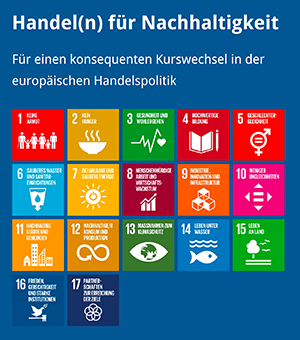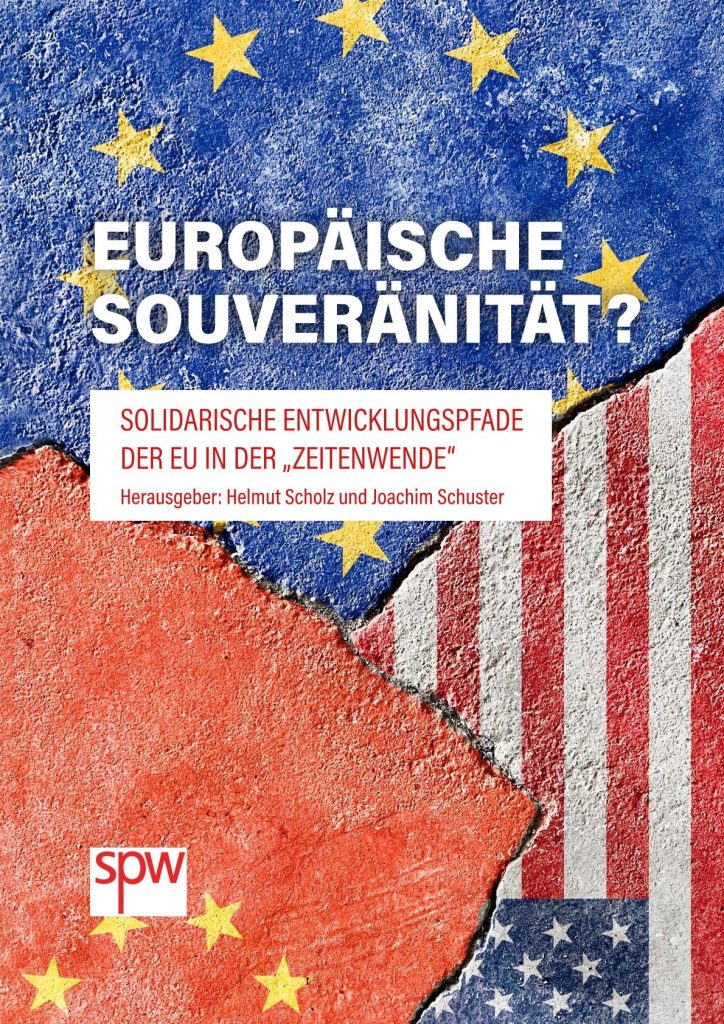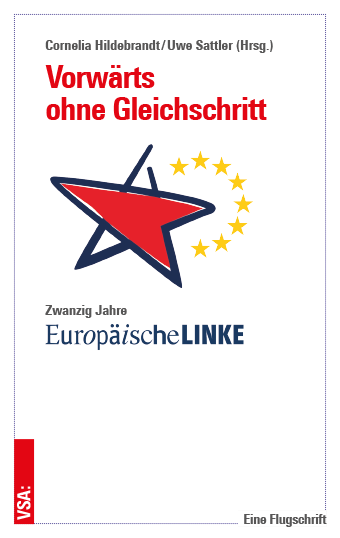Der linke Senator und frühere Präsidentschaftskandidat der US-Demokraten Bernie Sanders steht gemeinsam mit der Demokratin Ilhan Omar (für Minnesota im Repräsentantenhaus) an der Spitze einer Gruppe von Politiker*innen und Abgeordneten aus zwei Dutzend Staaten, die den Internationalen Währungsfonds und die Weltbank auffordern, die Schulden der ärmsten Länder der Welt zu erlassen und die Unterstützung dieser Staatengruppe zu verstärken. Die im April angekündigte Aussetzung der Schuldenzahlung werde nicht ausreichen, um die Länder in die Lage zu versetzen, mit der Krise umzugehen, teilten die Unterzeichner, zu denen auch der frühere britische Labour-Vorsitzende Jeremy Corbyn und Abgeordnete des Europäischen Parlaments, darunter Helmut Scholz, gehören, in einem Brief am Mittwoch veröffentlichten Brief mit. Die Politiker*innen und Abgeordneten forderte den IWF außerdem auf, Reserven in Billionenhöhe (Sonderziehungsrechte) zu bilden. Dies wird jedoch von US-Präsident Donald Trum abgelehnt. Die Schritte seien "das Mindeste, was die Finanzinstitute tun sollten, um eine unvorstellbare Zunahme von Armut, Hunger und Krankheit zu verhindern, die Hunderte Millionen Menschen bedroht", sagte Sanders in einer Erklärung. Die Unterzeichner forderten den IWF und die Weltbank auf, innerhalb von 15 Tagen zu antworten.
https://www.sanders.senate.gov/newsroom/press-releases/sanders-omar-lead-300-global-lawmakers-in-call-to-protect-developing-countries-from-economic-ruin
Der Text des Briefes:
May 13, 2020
David Malpass Kristalina Georgieva
The World Bank Group The International Monetary Fund
1818 H Street, N.W. 700 19th Street, N.W.
Washington, D.C. 20433 Washington, D.C. 20431
Dear President Malpass and Managing Director Georgieva:
Members of Parliaments across the world are writing to request extensive debt forgiveness for International Development Association (IDA) countries by all major international financial institutions (IFIs) during this global COVID-19 crisis.
We are pleased to see that the World Bank Group (WBG) and International Monetary Fund (IMF) have already taken steps to implement debt relief and suspension for the world’s poorest countries. The recent IMF announcement of temporary debt relief funding for 25 member countries is an encouraging development but much more widespread and long term support is still needed.
That is why we call on all G-20 leaders through these IFIs to support the cancellation of debt obligations held by all IDA countries during this unprecedented pandemic. The temporary suspension and deferment of debt will not be sufficient to help these countries fully prioritize the prompt and sustainable management of the crisis at hand. The vulnerable communities that lack the resources and privileges to adopt adequate public health measures will ultimately face the disproportionate burden of coronavirus. Such harm means that global supply chains, financial markets, and other interconnected exchanges will continue to be disrupted and destabilized.
We also urge you to support a major issuance of Special Drawing Rights (SDRs) in order to provide developing countries with urgent financial support. The pandemic-triggered economic crisis is expected to be far more devastating than the global financial crisis of 2009, when SDRs were last deployed. We concur with Managing Director Georgieva’s “lower-end” estimate of $2.5 trillion for the current financial needs of developing countries. An issuance of SDRs on the order of trillions of dollars will be required to avert major increases in poverty, hunger and disease.
Therefore, not only do we have a humanitarian duty to aid our petitioning countries in dire need, but we also have a common, vested interest to support comprehensive relief for effective recovery and resiliency. As a collaborative international community, we can only begin to move past this pandemic once this pandemic ends for everyone.
For those reasons, we urge the WBG and IMG to take strong leadership to provide extensive debt relief and financial assistance for all impoverished nations most at risk of the devastating human costs and the long-lasting economic injuries of COVID-19. We ask that you work with relevant bilateral and multilateral partners to provide a response no more than 15 days after receipt of this letter.
It is in our shared public health, security, and economic interests that we come together and act boldly to assist the most vulnerable nations among us. We stand ready to work with you and support immediate and long-term solutions to ensure fragile, destitute countries receive the flexibility and guidance they need in order to prevent humanitarian crises, protect public health, and promote global stability during this crisis and well after it is over for affluent nations.
In service,
Ilhan Omar Bernard Sanders
Member of Congress Senator
United States United States
Additional Signatories
Diane Abbott, Member of Parliament, United Kingdom
Marcela Aguiñaga, Member of National Assembly, Ecuador
Omar Paul Aguilar Condo, Senator, Bolivia
Mertxe Aizpurua, Member of Congress of Deputies, Spain
Alvina Alamestä, Member of European Parliament, Finland
Monica Aleman, Member of National Assembly, Ecuador
François Alfonsi, Member of European Parliament, France
Daniel Almeida, Member of Congress, Brazil
Perpétua Almeida, Member of Congress, Brazil
Ana Claudia Almirón, Senator, Argentina
José Luis Ancalle Gutiérrez, Member of Congress, Peru
Rasmus Andresen, Member of European Parliament, Germany
Óscar Arellano Pizarro, Member of Chamber of Deputies, Bolivia
Wilson Arias, Senator, Colombia
Carola Arraya Borges, Senator, Bolivia
Jaber Asaqla, Member of Knesset, Israel
Miquel Aubà i Fleix, Senator, Spain
Manon Aubry, Member of European Parliament, France
Aida Avella, Senator, Colombia
Yuriri Ayala, Member of Local Congress, Mexico City
Sara Bailac Ardanuy, Senator, Spain
Adam Bandt, Member of Parliament, Australia
Paula Barker, Member of Parliament, United Kingdom
Pernando Barrena, Member of European Parliament, Spain
Monte Bassa i Coll Marta, Member of Congress of Deputies, Spain
Fernando Bazán Villanueva, Member of Congress, Peru
Apsana Begum, Member of Parliament, United Kingdom
Marian Beitialarrangoitia, Member of Congress of Deputies, Spain
Brando Benifei, Member of European Parliament, Italy
Alejandro Bernales Maldonado, Member of Honorable Chamber of Deputies, Chile
Benoît Biteau, Member of European Parliament, France
Inés Blas, Senator, Argentina
Malin Björk, Member of European Parliament, Sweden
Gustavo Bolivar, Senator, Colombia
Manuel Bompard, Member of European Parliament, France
Gabriel Boric Font, Member of Honorable Chamber of Deputies, Chile
Marc Botenga, Member of European Parliament, Belgium
Maria Wendy Briceño Zuloaga, Member of Federal Congress, Mexico
Jorge Brito Hasbún, Member of Honorable Chamber of Deputies, Chile
Sonia Brito Sandoval, Member of Chamber of Deputies, Bolivia
Richard Burgon, Member of Parliament, United Kingdom
Ian Byrne, Member of Parliament, United Kingdom
Daniel Caggiani Gómez, Member of Parliament, Uruguay
Renildo Calheiros, Member of Congress, Brazil
Miquel Caminal Cerdà, Senator, Spain
Ignacio Benjamín Campos Equihua, Member of Federal Congress, Mexico
Rego Candamil, Member of Congress of Deputies, Spain
Miriam Elizabeth Cano Núñez, Member of Local Congress, Baja California, Mexico
Joan Capdevila i Esteve, Member of Congress of Deputies, Spain
Damien Carême, Member of European Parliament, France
Giovani Alfonsin Carlo Ayllon, Senator, Bolivia
Áurea Carolina, Member of Chamber of Deputies, Brazil
Carlos Caserio, Senator, Argentina
Ofer Cassif, Member of Knesset, Israel
Laura Castel i Fort, Senator, Spain
Xavier Castellana i Gamisans, Senator, Spain
Carlos Castillo, Member of Local Congress, Mexico City
Natalia Castillo Muñoz, Member of Honorable Chamber of Deputies, Chile
Anna Cavazzini, Member of European Parliament, Germany
Ivan Cépeda, Senator, Colombia
José Chala, Member of National Assembly, Ecuador
Abraham Checco Chauca, Member of Congress, Peru
Ferran Civit i Martí, Member of Parliament of Catalonia
Maurice Closs, Senator, Argentina
Katalin Cseh, Member of European Parliament, Hungary
Joan Collins, Member of Parliament, Ireland
Jeremy Corbyn, Member of Parliament, United Kingdom
David Cormand, Member of European Parliament, France
Mirella Cortès i Gès, Senator, Spain
Humberto Costa, Senator, Brazil
Miguel Crispi Serrano, Member of Honorable Chamber of Deputies, Chile
Esther Cuesta, Member of National Assembly, Ecuador
Clare Daly, Member of European Parliament, Ireland
María de los Ángeles Sacnun, Senator, Argentina
Diego Eduardo del Bosque Villarreal, Member of Federal Congress, Mexico
Nora del Valle Giménez, Senator, Argentina
Gwendoline Delbos-Corfield, Member of European Parliament, France
Adriana Delgado i Herreros, Member of Parliament of Catalonia
Karima Delli, Member of European Parliament, France
Marcelo Díaz Díaz, Member of Honorable Chamber of Deputies, Chile
Bettiana Díaz Rey, Member of Parliament, Uruguay
Martín Doñate, Senator, Argentina
Primo Dothé Mata, Senator, Mexico
Lili Duran, Member of National Assembly, Ecuador
Norma Durango, Senator, Argentina
Richard J. Durbin, Senator, United States
María Eugenia Duré, Senator, Argentina
Gorka Elejabarrieta, Senator, Spain
Xavier Eritja Ciuró, Member of Congress of Deputies, Spain
Luiza Erundina, Member of Chamber of Deputies, Brazil
Adelina Escandell Grases, Senator, Spain
Carlos Mauricio Espínola, Senator, Argentina
Brenda Espinoza Lopez, Member of Federal Congress, Mexico
Leticia Estrada, Member of Local Congress, Mexico City
Sabelio Estrada Soliz, Member of Chamber of Deputies, Bolivia
Federico Fagioli, Member of Honorable Chamber of Deputies, Argentina
Mehreen Faruqi, Senator, Australia
Jandira Feghali, Member of Chamber of Deputies, Brazil
Janeth Mercy Felipez Ríos, Senator, Bolivia
Maya Fernández Allende, Member of Honorable Chamber of Deputies, Chile
Enrique Fernández Chacón, Member of Congress, Peru
Anabel Fernández Sagasti, Senator, Argentina
Carlos Filizzola, Senator, Paraguay
Marcivania Flecha, Member of Congress, Brazil
Irene Fornós i Curto, Member of Parliament of Catalonia
Mary Foy, Member of Parliament, United Kingdom
Marcelo Freixo, Member of Chamber of Deputies, Brazil
Ricardo Fuentes, Member of Local Congress, Mexico City
Lilian Gálan, Member of the Chamber of Representatives of Uruguay
Diego García, Member of National Assembly, Ecuador
Jesús G. “Chuy” García, Member of Congress, United States
Silvina García Larraburu, Senator, Argentina
Guillermo García Realpe, Senator, Colombia
Pilar Garrido, Member of Congress of Deputies, Spain
Golriz Ghahraman, Member of Parliament, New Zealand
Raphaël Glucksmann, Member of European Parliament, France
Anton Gómez Reino, Member of Congress of Deputies, Spain
María Teresa González, Senator, Argentina
Nancy González, Senator, Argentina
Sandra Paola González Castañeda, Member of Federal Congress, Mexico
Inés Granollers Cunillera, Member of Congress of Deputies, Spain
Raúl M. Grijalva, Member of Congress, United States
Claude Gruffat, Member of European Parliament, France
Nancy Guamba, Member of National Assembly, Ecuador
Verónica Guevara, Member of National Assembly, Ecuador
José Gusmao, Member of European Parliament, Portugal
Txema Guijarro, Member of Congress of Deputies, Spain
Itai Hagman, Member of Honorable Chamber of Deputies, Argentina
Heidi Hautala, Member of European Parliament, Finland
Ana Cristina Hernández Trejo, Member of Local Congress, Mexico City
Gonzalo Herrera Cáceres, Member of Chamber of Deputies, Bolivia
Tomás Hirsch Goldschmidt, Member of Honorable Chamber of Deputies, Chile
Marcela Holguín, Member of National Assembly, Ecuador
Eva Luz Humerez Alviz, Member of Chamber of Deputies, Bolivia
Diego Ibañez Cotroneo, Member of Honorable Chamber of Deputies, Chile
Ana María Ianni, Senator, Argentina
Yousef Jabareen, Member of Knesset, Israel
Giorgio Jackson Drago, Member of Honorable Chamber of Deputies, Chile
Yannick Jadot, Member of European Parliament, France
Pramila Jayapal, Member of Congress, United States
Márcio Jerry, Member of Congress, Brazil
Kim Johnson, Member of Parliament, United Kingdom
Irma Juan Carlos, Member of Federal Congress, Mexico
Zitto Kabwe, Member of Parliament, Tanzania
Erika Kokay, Member of Chamber of Deputies, Brazil
Petros Kokkalis, Member of European Parliament, Greece
Edgardo Kueider, Senator, Argentina
Javier Lamarque, Member of Federal Congress, Mexico
Katrin Langensiepen, Member of European Parliament, Germany
Juan Ignacio Latorre Riveros, Senator, Chile
Ian Lavery, Member of Parliament, United Kingdom
Sergio Leavy, Senator, Argentina
Claudia Ledesma Abdala de Zamora, Senator, Argentina
Barbara Lee, Member of Congress, United States
Nelly Lenz Rosso, Member of Chamber of Deputies, Bolivia
Clive Lewis, Member of Parliament, United Kingdom
Rossio Magaly Lima Escalante, Senator, Bolivia
Carolina Lizárraga Houghton, Member of Congress, Peru
Juan Cristobal Lloret, Member of National Assembly, Ecuador
Lexi Loor, Member of National Assembly, Ecuador
Alexander López, Senator, Colombia
Cristina López Valverde, Senator, Argentina
Daniel Lovera, Senator, Argentina
Caroline Lucas, Member of Parliament, United Kingdom
Alfredo Luenzo, Senator, Argentina
Miguel Macedo, Member of Local Congress, Mexico City
Ernest Maragall i Mira, Member of Parliament of Catalonia
Joan Margall i Sastre, Member of Congress of Deputies, Spain
Jordi Martí Deulofeu, Senator, Spain
Robert Masih Nahar, Senator, Spain
Marisa Matias, Member of European Parliament, Portugal
José Mayans, Senator, Argentina
John McDonnell, Member of Parliament, United Kingdom
Fernanda Melchiona, Member of Chamber of Deputies, Brazil
Jean-Luc Mélénchon, Member of National Assembly, France
Esteban Melo, Member of National Assembly, Ecuador
Carlos Saúl Menem, Senator, Argentina
Dalmacio Mera, Senator, Argentina
Tilly Metz, Member of European Parliament, Luxembourg
Ignacio Mier Velazco, Member of Federal Congress, Mexico
Roberto Mirabella, Senator, Argentina
Beatriz Mirkin, Senator, Argentina
Vlado Mirosevic Verdugo, Member of Honorable Chamber of Deputies, Chile
Claudia Mix Jiménez, Member of Honorable Chamber of Deputies, Chile
Csaba Molnár, Member of European Parliament, Hungary
Ricardo Monreal Ávila, Senator, Majority Leader, and Chairman of the Political Coordination Board, Mexico
Gerardo Montenegro, Senator, Argentina
Absalón Montoya Guivin, Member of Congress, Peru
Guadalupe Morales, Member of Local Congress, Mexico City
Lucia Muñoz, Member of Congress of Deputies, Spain
Pabel Muñoz, Member of National Assembly, Ecuador
Amapola Naranjo, Member of National Assembly, Ecuador
Alejandro Navarro, Senator, Chile
José Emilio Neder, Senator, Argentina
Niklas Nienass, Member of European Parliament, Germany
Nazario Norberto, Member of Local Congress, Mexico City
Eleanor Holmes Norton, Member of Congress, United States
Joan Josep Nuet Pujals, Member of Congress of Deputies, Spain
Emilia Nuyado Ancapichún, Member of Honorable Chamber of Deputies, Chile
Grace O’Sullivan, Member of European Parliament, Ireland
Alexandria Ocasio-Cortez, Member of Congress, United States
Ayman Odeh, Member of Knesset, Israel
Kate Osamor, Member of Parliament, United Kingdom
Juan Mario Pais, Senator, Argentina
Maite Orsini Pascal, Member of Honorable Chamber of Deputies, Chile
Mònica Palacín i París, Member of Parliament of Catalonia
Ernesto Palacios Cordero, Member of Federal Congress, Mexico
Oscar Parrilli, Senator, Argentina
Lourdes Paz, Member of Local Congress, Mexico City
Elisenda Pérez i Esteve, Senator, Spain
Catalina Pérez Salinas, Member of Honorable Chamber of Deputies, Chile
Laura Imelda Pérez Segura, Member of Federal Congress, Mexico
Ancelma Perlacios Peralta, Senator, Bolivia
Gustavo Petro, Senator, Colombia
Bernat Picornell Grenzner, Senator, Spain
María Inés Pilatti Vergara, Senator, Argentina
Manu Pineda, Member of European Parliament, Spain
Gerardo Pisarello, Member of Congress of Deputies, Spain
María José Pizarro, Member of Congress, Colombia
Mark Pocan, Member of Congress, United States
Yofre Poma, Member of National Assembly, Ecuador
Alice Portugal, Member of Congress, Brazil
Ayanna Pressley, Member of Congress, United States
Thomas Pringle, Member of Parliament, Ireland
Mauricio Proaño, Member of National Assembly, Ecuador
Norma Pujol Farre, Member of Congress of Deputies, Spain
Yvan Quispe Apaza, Member of Congress, Peru
Juana Quispe Ari, Member of Chamber of Deputies, Bolivia
Mariano Recalde, Senator, Argentina
Sira Rego, Member of European Parliament, Spain
Diana Riba i Giner, Member of European Parliament, Spain
Carmita Ribadeneira, Member of National Assembly, Ecuador
Bell Ribeiro-Addy, Member of Parliament, United Kingdom
Gabriela Rivadeneira, Member of National Assembly, Ecuador
Michèle Rivasi, Member of European Parliament, France
Antonio Rodas, Senator, Argentina
Edmilson Rodrigues, Member of Chamber of Deputies, Brazil
Matías Rodríguez, Senator, Argentina
José Luis Rodríguez Díaz de León, Member of Local Congress, Mexico City
Manuel Rodríguez González, Member of Federal Congress, Mexico
Maria Eugenia Rodríguez Palop, Member of European Parliament, Spain
Adolfo Rodríguez Saá, Senator, Argentina
Caroline Roose, Member of European Parliament, France
Camila Rojas Valderrama, Member of Honorable Chamber of Deputies, Chile
Isabela Rosales, President of Local Congress, Mexico City
Patricio Rosas Barrientos, Member of Honorable Chamber of Deputies, Chile
Marta Rosique i Saltor, Member of Congress of Deputies, Spain
Josep Rufà Gràcia, Senator, Spain
Gabriel Rufián Romero, Member of Congress of Deputies, Spain
Bobby L. Rush, Member of Congress, United States
Jordi Salvador i Duch, Member of Congress of Deputies, Spain
Silvia Sapag, Senator, Argentina
Adriana Salvatierra Arriaza, Senator, Bolivia
Franklin Samaniego, Member of National Assembly, Ecuador
Miroslava Sánchez Galván, Member of Federal Congress, Mexico
Charles Santiago, Member of Parliament, Malaysia
Rocío Silva Santisteban Manrique, Member of Congress, Peru
Mounir Satouri, Member of European Parliament, France
Helmut Scholz, Member of European Parliament, Germany
Alejandra Sepúlveda Orbenes, Member of Honorable Chamber of Deputies, Chile
Orlando Silva, Member of Congress, Brazil
Guillermo Snopek, Senator, Argentina
Doris Soliz, Member of National Assembly, Ecuador
Ana Surra Spadea, Senator, Spain
Zarah Sultana, Member of Parliament, United Kingdom
Jorge Taiana, Senator, Argentina
Carolina Telechea Lozano, Member of Congress of Deputies, Spain
Rashida Tlaib, Member of Congress, United States
Víctor Torres Jeldes, Member of Honorable Chamber of Deputies, Chile
Aida Touma-Sliman, Member of Knesset, Israel
Marie Toussaint, Member of European Parliament, France
Jon Trickett, Member of Parliament, United Kingdom
Rubén Uñac, Senator, Argentina
Miguel Urbán, Member of European Parliament, Spain
Roberto Uriarte, Member of Congress of Deputies, Spain
Ernest Urtasun, Member of European Parliament, Spain
Feliciano Valencia, Senator, Colombia
Bairon Valle, Member of National Assembly, Ecuador
Pilar Vallugera i Balañà, Member of Congress of Deputies, Spain
Julio César Vázquez Castillo, Member of Local Congress, Baja California, Mexico
Leticia Varela, Member of Local Congress, Mexico City
Yanis Varoufakis, Member of Hellenic Parliament, Greece
Mirtha Vasquez Chiquilín, Member of Congress, Peru
Esteban Velásquez, Member of Honorable Chamber of Deputies, Chile
Julieta Kristal Vences Valencia, Member of Federal Congress, Mexico
Enio Verri, Member of Chamber of Deputies, Brazil
Pablo Vidal Rojas, Member of Honorable Chamber of Deputies, Chile
Alejandro Viedma Velázquez, Member of Federal Congress, Mexico
Marta Vilalta i Torres, Member of Parliament of Catalonia
Alberto Villa Villegas, Member of Federal Congress, Mexico
Esperanza Villalobos, Member of Local Congress, Mexico City
José María Villalta Flores Estrada, Member of Congress of Deputies, Costa Rica
Idoia Villanueva, Member of European Parliament, Spain
Temístocles Villanueva Ramos, Member of Local Congress, Mexico City
Nikolaj Villumsen, Member of European Parliament, Denmark
Ruben Wagensberg i Ramon, Member of Parliament of Catalonia
Mick Wallace, Member of European Parliament, Ireland
Joenia Wapichana, Member of Chamber of Deputies, Brazil
Claudia Webbe, Member of Parliament, United Kingdom
Mick Whitley, Member of Parliament, United Kingdom
Nadia Whittome, Member of Parliament, United Kingdom
Gonzalo Winter Etcheberry, Member of Honorable Chamber of Deputies, Chile
Salima Yenbou, Member of European Parliament, France
Gael Yeomans Araya, Member of Honorable Chamber of Deputies, Chile
Mauricio Zambrano, Member of National Assembly, Ecuador
Maricela Zúñiga, Member of Local Congress, Mexico City









